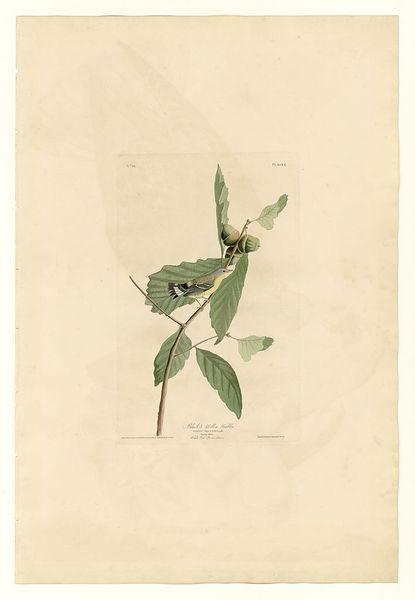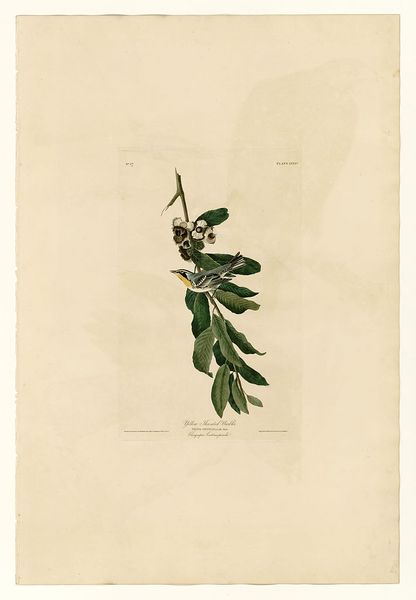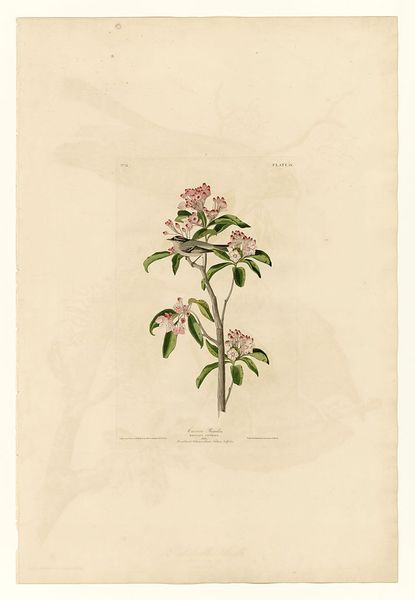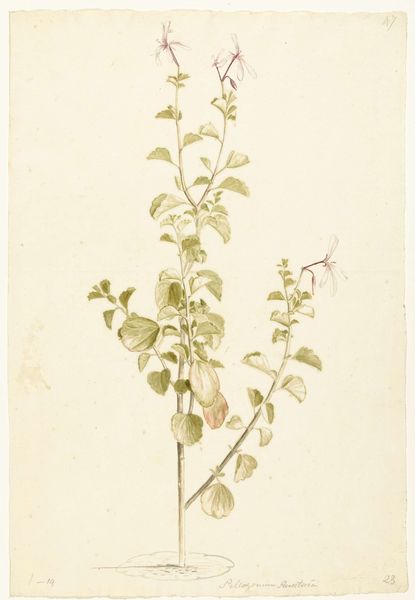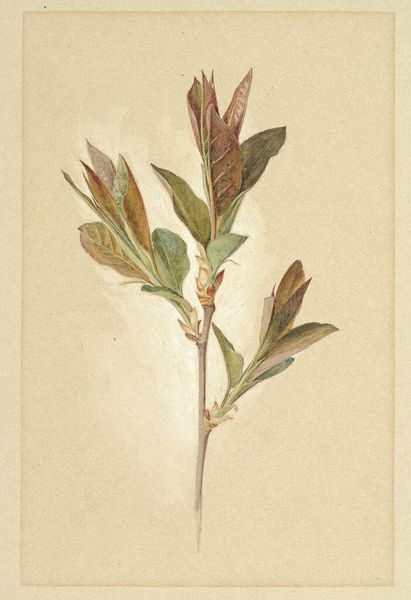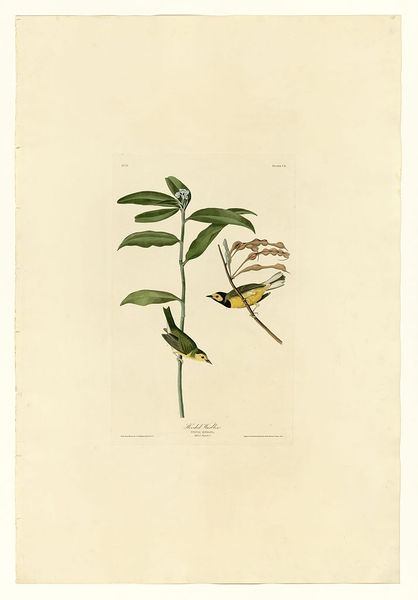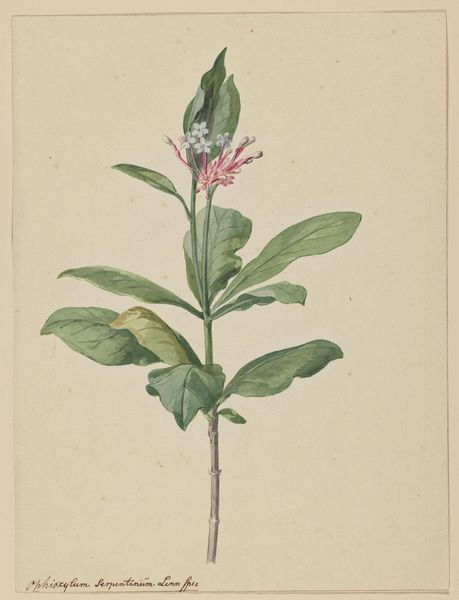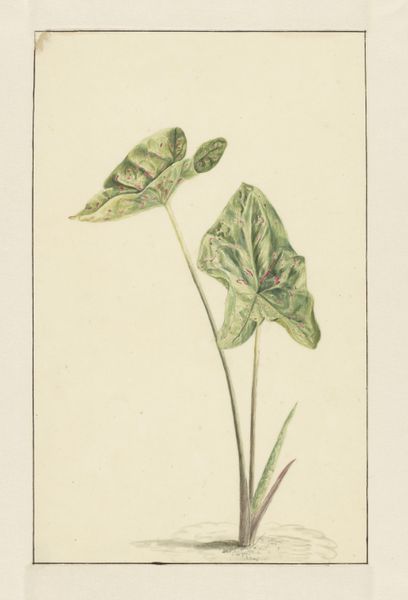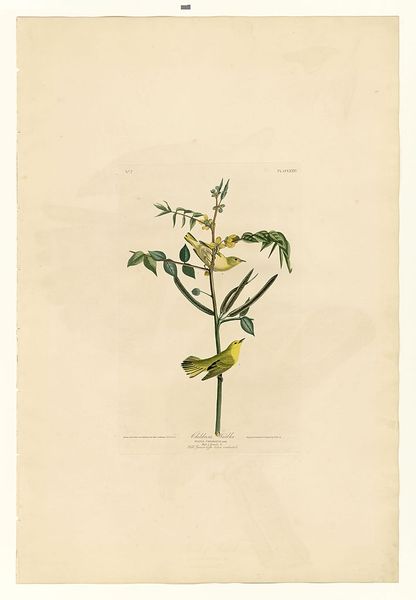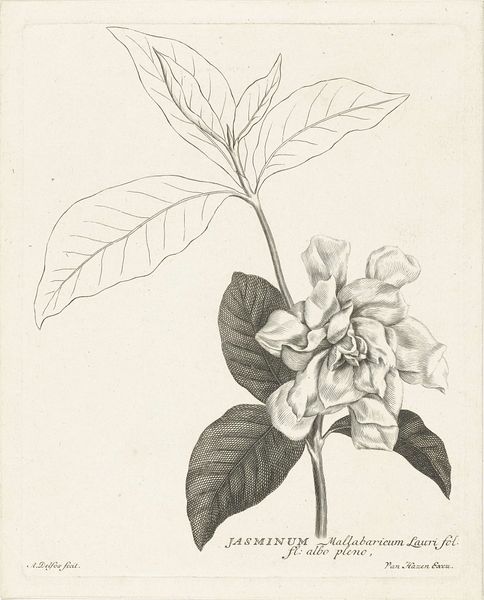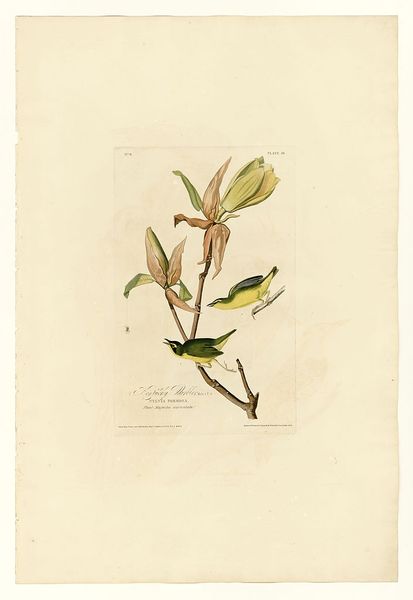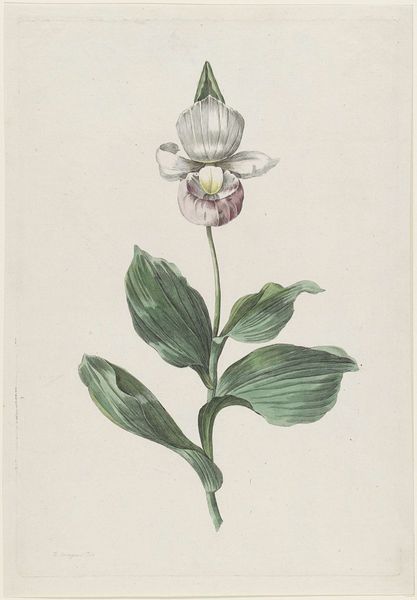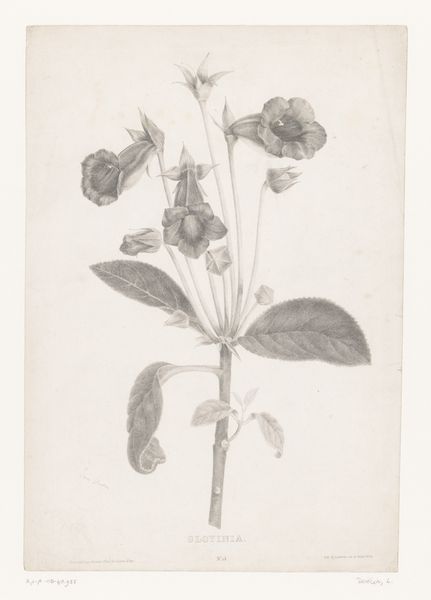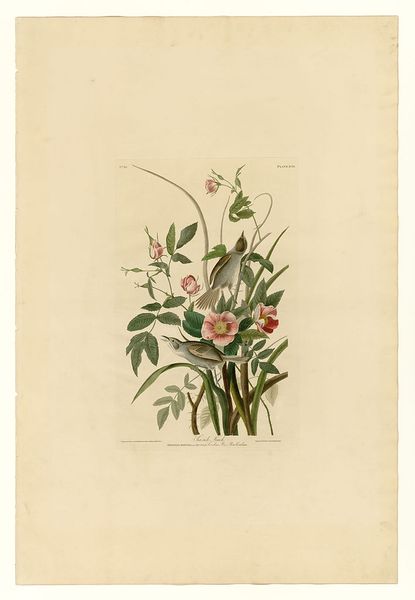
print, etching, watercolor
# print
#
etching
#
botanical illustration
#
etching
#
watercolor
#
romanticism
#
botanical drawing
#
botanical art
Dimensions: height 330 mm, width 202 mm
Copyright: Rijks Museum: Open Domain
This is a watercolor of a Protea flower, created by Hendrik Schwegman, an artist active in the late 18th and early 19th centuries. The botanical study is painted on paper, a relatively inexpensive and portable material, which speaks to the tradition of scientific exploration in which Schwegman was working. Note the fine lines and delicate gradations of color. These were achieved through the application of thin washes of pigment, a technique that requires great skill and precision. The artist would have built up the image layer by layer, carefully rendering the subtle details of the flower's form and texture. Consider the social context of this image. Botanical illustrations like this one were often commissioned by wealthy patrons, who were interested in documenting and classifying the natural world. They were a way of asserting control over nature, of turning it into a commodity that could be studied and traded. Ultimately, understanding the materials, making, and context of this artwork enriches our appreciation of it, and challenges traditional distinctions between fine art and craft.
Comments
No comments
Be the first to comment and join the conversation on the ultimate creative platform.
